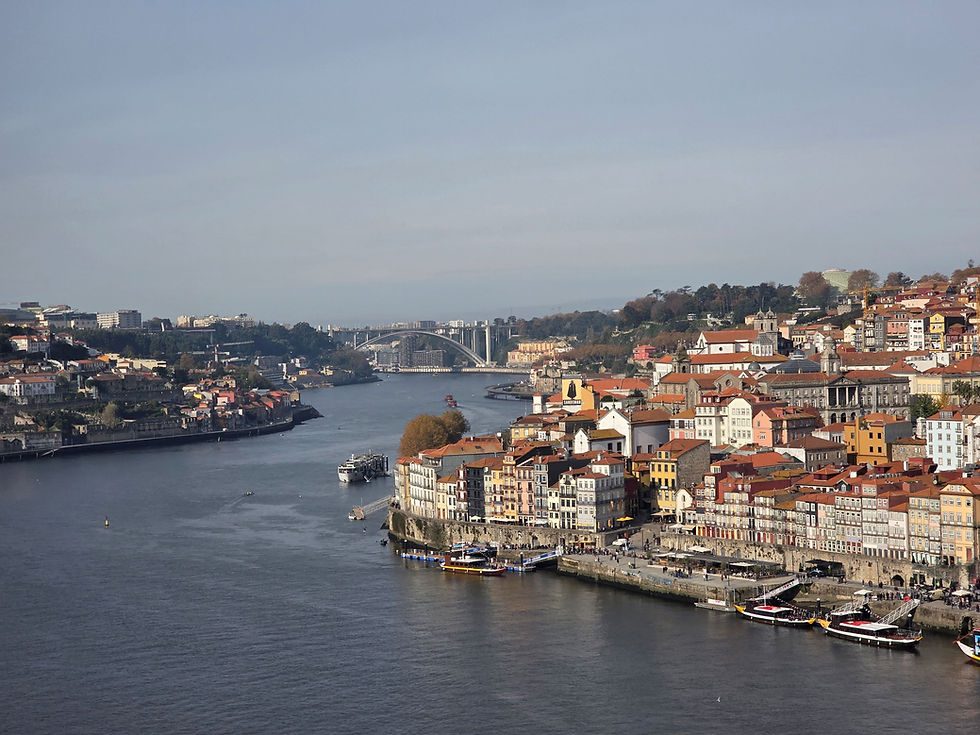Tips for Healthy Travel
- Patti Mills-Roy

- Sep 3, 2024
- 4 min read
Updated: Nov 18, 2025
I thought it would be important to share some great tips and tricks with my clients about the best ways and means to stay healthy while traveling, especially on longer haul flights. I’ve certainly done plenty of long-haul flights over the years and will continue to do them so that it’s always great to get additional advice, especially from others in the know who do it for a living. Who better than to get this advice from, but flight attendants.

Photo of Rene & me when traveling during Covid in 2020 to Uganda, Africa. No need these days for all this garb to stay healthy & fit while traveling, gratefully...
When you think about it, flying at 37,000 feet, going 575 miles an hour ‘inside a pressurized bullet filled with dozens of other people’ is certainly a blatant reality of truth when flying in an airplane. Add a lengthy long-haul flight equation to this and it just compounds the toll that it can take on anyone if you don’t handle the situation in the right manner.

Interestingly, they do recommend that you make it a priority to get some sleep on the plane. One important factor to achieving this is getting the right pillow for you. There are so many different types available and one that many have had great success with is one that supports the chin rather than the cheek.
A meditation app is another useful device for those with difficulty sleeping or even if you have a phobia to flying it can be helpful. Insight Timer is one great recommendation but there are many to choose from.
Oral sleeping aids, such as melatonin or other natural sleeping aids are another option that some use although stronger options shouldn’t be mixed with alcohol.
Adjusting to time changes is a very important ingredient to managing jet lag and there are many options here. Some have the belief that one should immediately adjust to the new time zones as soon as one boards the aircraft or even prior to this. They call this ‘raw-dogging’ it, whereby you force yourself into adjusting to the time zone that you’re flying to. This may mean no snacking, no napping, and in as much as it may work for some, it certainly seems harsh to me.
I’ve always been one to take it all in stride and go with the flow of enjoying my time on the airline with dining, enjoying a movie or 2 and then getting some much-needed sleep when I’m ready. Depending on the length of the flight, I tend to wake up refreshed and ready to go for as long as required to then adapt to the local time in my destination. Returning home isn't always quite that easy though, admittedly. This is when it tends to take more time for me.
Exercising during a flight is something that’s highly recommended and even some pre-flight exercise is also a plus. There are many stretches and moves that can be done while seated and then getting up to walk the plane is also a good idea provided there’s no turbulence. Some airlines even have some recommended exercises on their entertainment system to follow and they’re excellent!
There are even some airlines working on “wellbeing zones” such as Qantas with their new A350 planes for the longer haul routes which is pretty innovative and cool!
One should always listen to the pilots and flight attendants regarding any risk of turbulence and it’s always recommended to keep those seatbelts fastened at all times while seated. Turbulence is serious business.
Hydration is another critical element with traveling or any time, frankly. And I do mean water, not alcohol, of course. Although I must admit that I do enjoy having a couple of drinks while I’m flying to enjoy both pre-dinner and during dinner. This also helps me to sleep but I’m always one to ensure that I drink plenty of water together with the alcohol and meal. I also have never personally taken any other sleeping aids with the alcohol and that works for me.
Interestingly, the Aerospace Medical Association recommends that one should drink at least 8 ounces of water for each hour you’re in the air. This sounds like a good rule of thumb.
One other item that’s best to avoid is sodium since it tends to cause bloating and dehydration. You should try to avoid anything too salty, sugary and even caffeine since they not only cause dehydration but they also cause energy crashes. Foods that stabilize your energy levels and are nutrient-dense are the best such as nuts and fresh fruits.
Immune system fortification is another great recommendation including ensuring sufficient Vitamin C intake with fruits like berries and oranges and Vitamin D is another important additive either naturally or in a supplement. Lastly, both zinc and selenium are helpful both before and during travel in order to help fortify overall immune health for travelers.
Of course, I’m not a Dr. and I ultimately only know what truly works for me but based on some of these recommendations that I’ve read from flight attendants who fly for a living, I thought it might be beneficial to pass them along in case you might find some or all of it helpful too!
Special appreciation given to the Conde Nast article in their July 23rd, 2024 edition.
_edited.jpg)



Comments